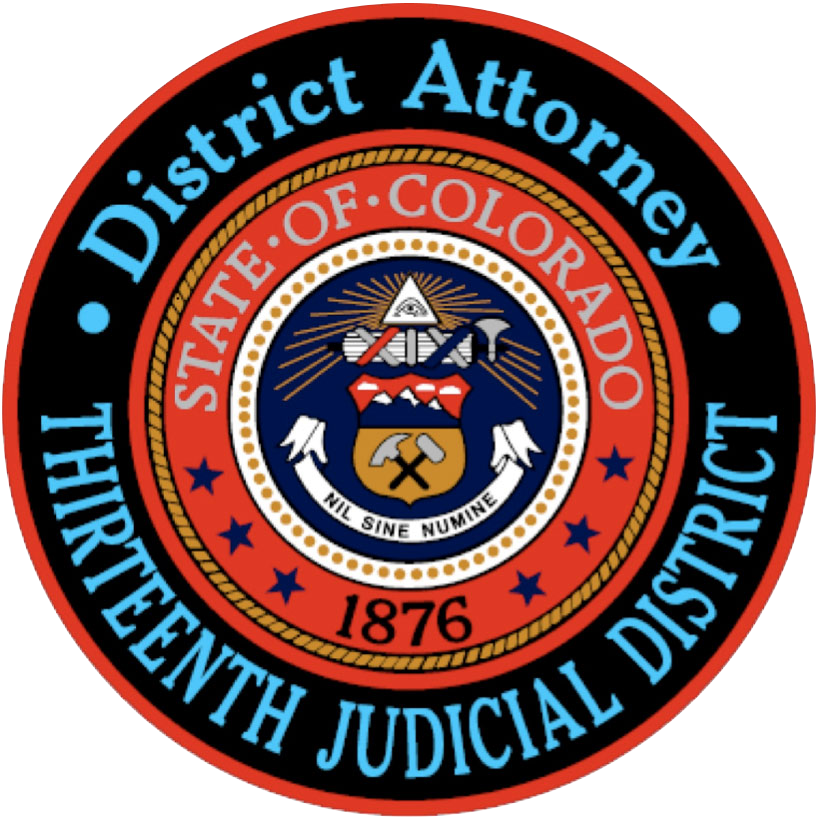
Victim Restitution
What is restitution?
Restitution is the repayment of losses to a victim by a defendant. Victims of crime have the right to obtain restitution from defendants after a defendant has pleaded guilty or been found guilty at trial and a sentence is imposed.
Who can I contact about restitution in my case?
If you live within Morgan or Kit Carson county, please call (970) 542-3420.
If you live within Logan, Sedgewick, Philips, Washington, or Yuma county, please call (970) 522-2973.
How does the process work?
The District Attorney is responsible for providing the Court with the amount of restitution owed to a victim, or victims, in a criminal case.
Prior to sentencing, a Victim Impact Statement is mailed to all victims of crime where injury to a person or damage to property is charged. The Victim Impact Statement will ask about the emotional as well as the financial impact of the crime and will be provided to the judge at sentencing.
The judge considers only losses directly caused by the crime. It is important to provide the District Attorney with specific documentation of the loss. If you are the victim of a crime and have questions concerning what kind of documentation is required, the victim advocate assigned to the case can be of assistance. It is also important to make sure that the District Attorney’s Office has current contact information for you and that all restitution documentation is provided to the District Attorney in a timely manner.
At the sentencing hearing, the judge will make a specific order of restitution if the amount is known and documented. The Court can reserve the restitution order for 90 days if an exact amount still needs to be determined. If the amount of restitution is in dispute, the judge can order a restitution hearing and you may be required to appear and testify.
Once a specific amount of restitution is ordered by the Court, the defendant will be required to pay into a registry of the Court and responsibility for collection of the restitution lies with the judicial department.

How can we serve you?
Talk to our office to find the information or support you need.




